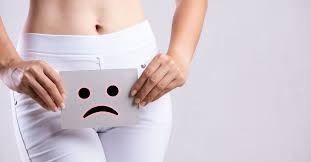Vaginal dryness is a common issue that many women experience at some point in their lives. It can cause discomfort, irritation, and even pain during sex. While it’s often linked to menopause, this can happen at any age due to various reasons. The good news is that it’s treatable, and there are many ways to manage it.
What Causes Vaginal Dryness?
The most common cause of vaginal dryness is low estrogen levels. Estrogen is a hormone that helps keep the vagina moist and healthy. When estrogen levels drop, the vaginal walls become thinner and produce less natural lubrication. This can happen due to:
- Menopause – A natural decline in estrogen as women age.
- Breastfeeding – Hormonal changes after childbirth can reduce vaginal moisture.
- Certain Medications – Some allergy, cold, and birth control medications can dry out vaginal tissues.
- Stress and Anxiety – Emotional stress can affect hormone balance and reduce natural lubrication.
- Douching and Harsh Soaps – These can disrupt the vagina’s natural moisture and healthy bacteria.
- Certain Medical Treatments – Chemotherapy and radiation therapy can lower estrogen levels.
Symptoms of Vaginal Dryness
Women with vaginal dryness may experience:
- Itching or burning in the vaginal area.
- Pain or discomfort during sex due to lack of lubrication.
- A feeling of tightness or irritation.
- Frequent urinary tract infections (UTIs) because it can make the area more prone to infection.
Simple Ways to Relieve Vaginal Dryness
- Use Water-Based Lubricants – These provide instant relief and make sex more comfortable. Look for gentle, fragrance-free options.
- Try Vaginal Moisturizers – These are different from lubricants and help keep the vagina hydrated daily.
- Stay Hydrated – Drinking plenty of water helps maintain overall body hydration, including vaginal moisture.
- Avoid Harsh Soaps and Douching – Use mild, unscented soaps to protect the vagina’s natural balance.
- Manage Stress – Yoga, meditation, and exercise can help regulate hormones and improve overall well-being.
- Eat a Healthy Diet – Foods rich in omega-3 fatty acids (like fish and nuts) and phytoestrogens (like soy and flaxseeds) may help balance hormones.
- Talk to a Doctor About Hormone Therapy – For severe dryness, doctors may recommend vaginal estrogen creams, rings, or tablets.
When to See a Doctor
If vaginal dryness is persistent and affects your daily life or relationships, it’s a good idea to consult a healthcare provider. They can help identify the cause and recommend the best treatment.
Final Thoughts
Vaginal dryness is a common but manageable condition. Simple lifestyle changes, over-the-counter products, and, in some cases, medical treatments can help relieve discomfort. The most important thing is to listen to your body and seek help if needed. There’s no shame in talking about it—your health and comfort matter!


